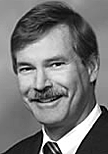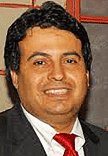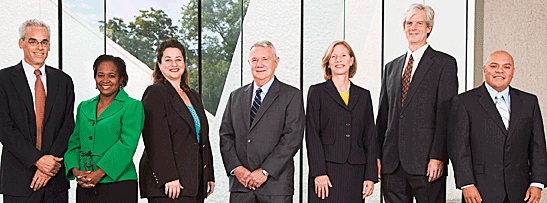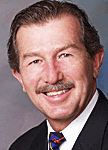City Council
Court halts $354 million development subsidy
Austin City Manager: Dallas discard vs Austin retread
They’re off and running for council
Private E-mails About City Business
Pulled Into City of Austin Records Retention
City Council Votes to Consider Policy
Draft at Council Meeting of April 7
by Ken Martin
© The Austin Bulldog 2011
The Austin City Council voted 6-0 this morning, with Council Member Bill Spelman absent, to direct city staff to draft a new policy that would require designated city officials to ensure that e-mails pertaining to city business that are created or received on personal devices would be copied to the city’s e-mail servers so these messages would be available to a requestor under the Texas Public Information Act, Chapter 552 of the Government Code.
 The draft policy is to be placed on the April 7 City Council meeting agenda for discussion and possible adoption. Which city officials would be included in such a policy will be discussed at that meeting, but attorney James C. “Jim” Cousar of Thompson & Knight LLP, told the council that requiring all city employees to do so would be “difficult, expensive, and unworkable.”
The draft policy is to be placed on the April 7 City Council meeting agenda for discussion and possible adoption. Which city officials would be included in such a policy will be discussed at that meeting, but attorney James C. “Jim” Cousar of Thompson & Knight LLP, told the council that requiring all city employees to do so would be “difficult, expensive, and unworkable.”
Cousar suggested that guidance should be provided to anyone made subject to such a policy about what constitutes an e-mail that must be retained by the city vs. a personal e-mail that does not. He also noted that e-mails from personal devices that are forwarded to city e-mail servers would be subject to the exceptions set forth in the Texas Public Information Act that bar release of certain sensitive documents in response to an open records request.
A important question that was not addressed in today’s work session is what penalty, if any, would apply to violators of whatever new policy is adopted.
Lawsuit issues not addressed
Council Member Laura Morrison Releases E-mails
E-mails on City Business from Gmail Account
Morrison Second Council Member to Turn Over More
E-mails Responsive to The Austin Bulldog’s Requests
by Ken Martin
© The Austin Bulldog 2011
 Late this afternoon the City of Austin’s Public information Office issued a statement by Council Member Laura Morrison along with six e-mails totaling 11 pages.
Late this afternoon the City of Austin’s Public information Office issued a statement by Council Member Laura Morrison along with six e-mails totaling 11 pages.
Morrison is the second council member to break ranks and voluntarily release e-mails requested by The Austin Bulldog under the Texas Public Information Act that were not retained within the city’s communication system.Council Member Bill Spelman yesterday released three e-mails from his University of Texas e-mail account about city business.
She is the first to release e-mails that she created or received from her personal e-mail account.
Morrison’s press release states, “In the interest of transparency, in the few cases when I may have conducted city business with e-mail on my personal account, my policy is to forward the e-mail to my city account. This practice is consistent with the draft policy that was discussed at the March 29 Council Work Session, which I will continue.
Bulldog Files Civil Complaint Against City
Against City of Austin and Council Members
Travis County Attorney David Escamilla
Has Legal Authority to Force Compliance
by Ken Martin
© The Austin Bulldog 2011
 The Austin Bulldog today filed a formal complaint with Travis County Attorney David Escamilla against the City of Austin and Austin City Council members pursuant to Section 552.3215 of the Texas Public Information Act (TPIA), Chapter 552 of the Government Code.
The Austin Bulldog today filed a formal complaint with Travis County Attorney David Escamilla against the City of Austin and Austin City Council members pursuant to Section 552.3215 of the Texas Public Information Act (TPIA), Chapter 552 of the Government Code.
This complaint, which is civil in nature, not criminal, requests that Escamilla use his authority to determine if the City of Austin and its officials have violated the TPIA as alleged in the complaint.
If Escamilla finds that violations have occurred, the complaint asks that he seek a court order requiring the city, council members and staff to comply with the Act. He has the authority to bring a lawsuit in the name of the State of Texas for declaratory judgment and injunctive relief that is in addition to any other civil, administrative, or criminal action.
Escamilla declined to comment about the complaint.
Filing the complaint initiated a statutory process, detailed in Section 552.3215(g) of the TPIA, that by law requires Escamilla before the 31st day after the complaint is filed (in this case before April 23) to determine whether the violation alleged in the complaint was committed and whether an action will be brought against the governmental body, and to notify the complainant in writing of his determination.
Complaint separate from lawsuit
Expired: Bulldog’s Offer to Settle City Lawsuit
Lawsuit with City, Mayor and Council Members
Does This Mean These Elected Officials
Want to Continue to Violate State Laws?
by Ken Martin
© The Austin Bulldog 2011

As reported March 2, The Austin Bulldog filed a lawsuit against the mayor, each city council member, and the City of Austin over the city’s decision to withhold certain government records—including records involving public business that were created or received on the mayor or council members’ cell phones or personal computers or the city’s Spark chat system.
The lawsuit claims that council members have violated records management laws by not turning these records over to the city so that the city can comply with the Texas Public Information Act.

 On March 4, The Austin Bulldog’s attorney, Bill Aleshire of Riggs Aleshire & Ray PC, submitted a settlement offer to the attorney handling the lawsuit for the city, James E. “Jim” Cousar of Thompson & Knight LLP.
On March 4, The Austin Bulldog’s attorney, Bill Aleshire of Riggs Aleshire & Ray PC, submitted a settlement offer to the attorney handling the lawsuit for the city, James E. “Jim” Cousar of Thompson & Knight LLP.
“The Austin Bulldog seeks to help the City of Austin become the shining beacon of open government in Texas,” the settlement offer states. “An important first step in that process is for Austin officials to stop communicating about city business in ways that avoid application of the Texas Public Information Act to such correspondence.”
The settlement offer expired at 5pm today. No defendant accepted the proposed terms. Fifteen minutes before the offer expired, Cousar spoke with Aleshire on the telephone.
“He (Cousar) told me that six of the seven members of the council and the City of Austin respectfully decline the offer to settle,” Aleshire said. “I told him we would respectfully proceed with the lawsuit.”
Settlement offer conditions
Spelman’s City E-mails on UT Account Will Not Be Provided
on UT Account Will Not Be Provided
University of Texas Will Seek Opinion
by Ken Martin
© The Austin Bulldog 2010
 Professor William “Bill” Spelman of the LBJ School of the University of Texas at Austin, today told The Austin Bulldog that he “occasionally” uses his university e-mail account for sending and receiving messages that involve his duties as an Austin City Council member.
Professor William “Bill” Spelman of the LBJ School of the University of Texas at Austin, today told The Austin Bulldog that he “occasionally” uses his university e-mail account for sending and receiving messages that involve his duties as an Austin City Council member.
The Austin Bulldog filed an open records request with UT Austin yesterday to obtain copies of Spelman’s e-mails from his university account that involve his work as a city council member.
Those records will not be made available. The university will instead seek an opinion from the Texas Attorney General, said open records coordinator Annela Lopez, who works in the office of Kevin Hegarty, vice president and chief financial officer of UT, who is the university’s custodian of records. Based on previous requests for e-mails created or received by faculty members that do not involve their duties as university employees, it’s unlikely that the attorney general will order Spelman’s e-mails involving city business to be released.
“We need to let this play out through the attorney general,” Lopez said.
The City of Austin previously declined to provide copies of e-mails the mayor and council members sent or received about city business on their personal computers or cell phones. UT’s policy adds to the problem of obtaining records under the Texas Public Information Act that are created or received on other than City of Austin accounts.
What we have here is not a “failure to communicate,” as the Captain tells Luke and other road-gang prisoners in the 1967 movie Cool Hand Luke, but a failure by the City of Austin to ensure that communication created or received by city officials—which by definition are “local government records”—are stored and maintained in accordance with the Local Government Records Act so those records will be available upon request under the Texas Public Information Act, Chapter 552 of the Texas Government Code. That's the law that gives everyone—not just journalists—the right to find out about the workings of government.







